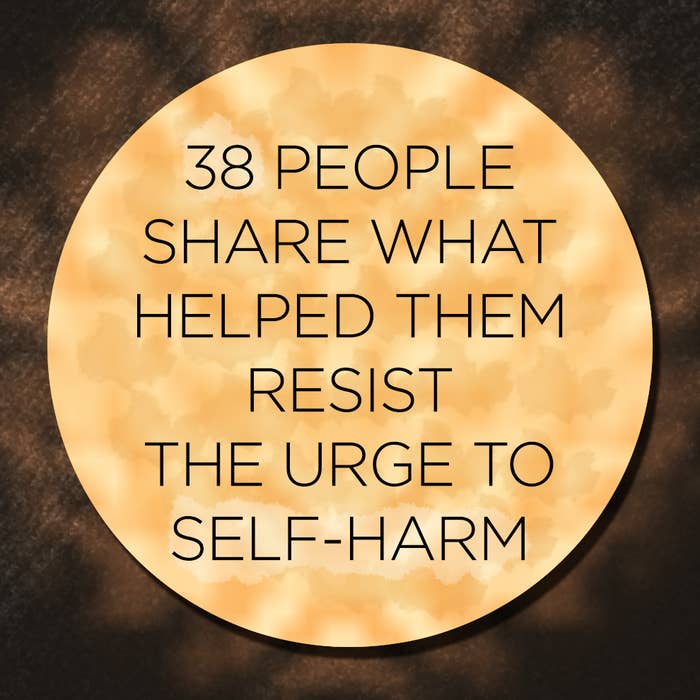
We asked the BuzzFeed Community to tell us what helped them resist the urge to self-harm. Here are the inspiring results.
1. "I've gotten a tattoo on my 'go-to' arm. That way if I'm alone and start to feel the impulses come along I just look down. "
–Anonymous
2. "Sometimes I eat something comforting, sometimes I pet my dogs or put on reruns of a familiar show to ground myself, a lot of times I sleep. Deep-breathing exercises are very important as well."
–Anonymous
3. "I've come to accept the fact that the impulses will never go away completely. They'll always be there calling my name and tempting me to take the easy way out. I just have to remind myself that I'm stronger, even on my weakest of days, and know that I'm living and loving for more than just myself."
–Anonymous
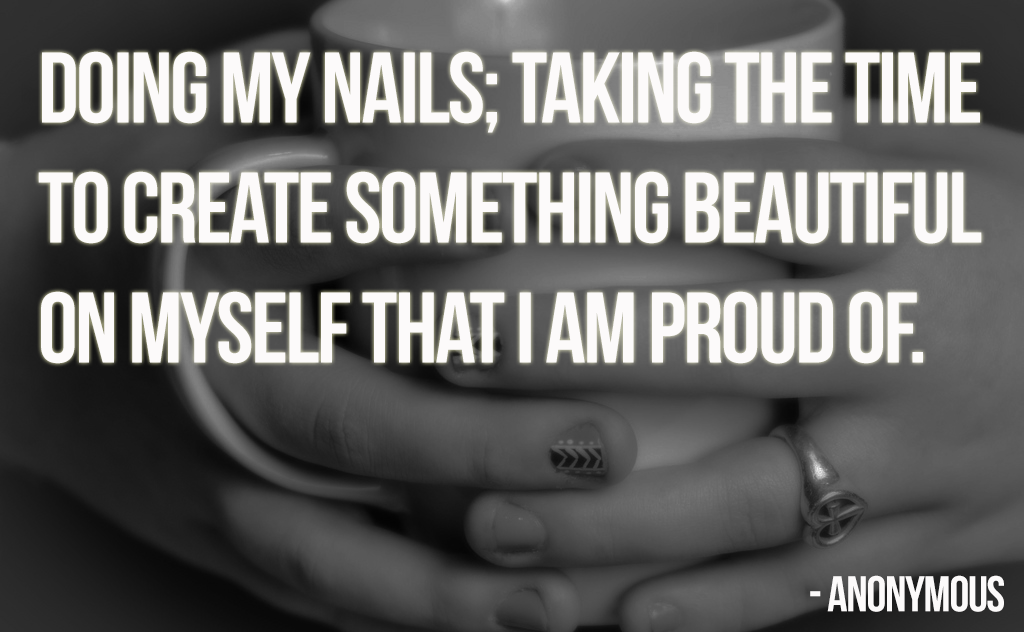
5. "Ask for help from people you trust or from a professional, particularly during times when you are not feeling depressed. This enables you to have a system already in place for when you start to feel the waves of depression and anxiety that trigger the self-harm."
—Hannah
6. "I have a tattoo of an arrow that helps to remind me to keep moving. If an arrow isn't released, it won't go anywhere. It's the same way the past works: If you don't release it, it will stay and it will always hold you back."
—Anonymous
7. "I get sharpies and cover my left arm in drawings of roses to remind myself that God, my friends, and my family find me beautiful, and that I should consider myself beautiful too."
—Anonymous
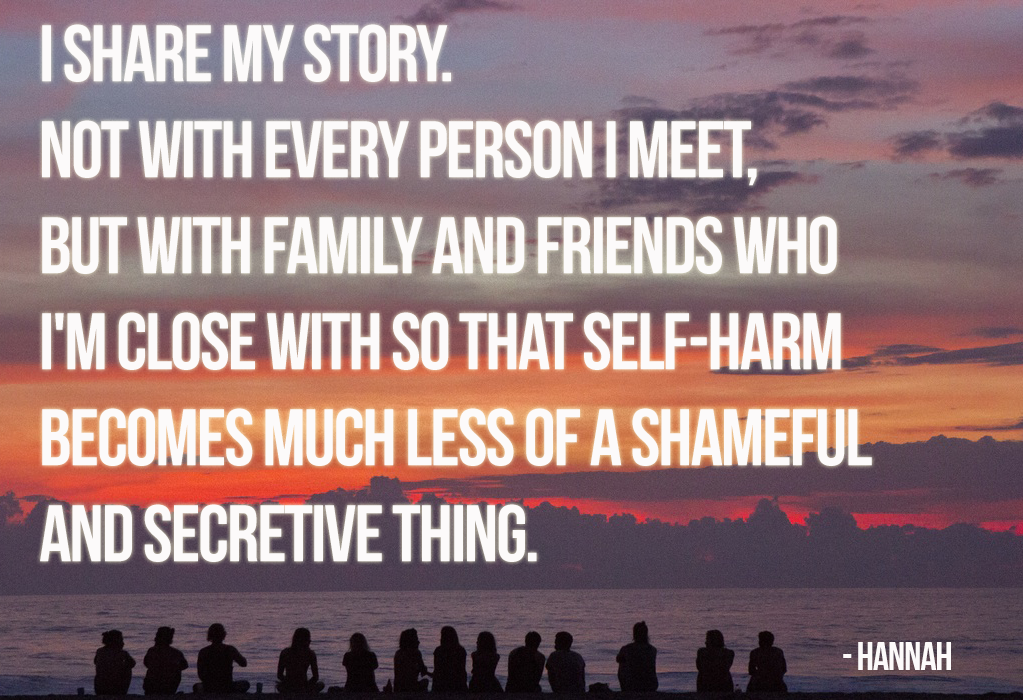
9. "Therapy gave me an outlet for all of the emotions that were just building up."
—Ashley
10. "I started trying new things that I had never done before, and I came to love them. For example, I joined the speech team in high school and I've enjoyed it so much ever since. Finding new things that you love to do is such a great way to feel better about yourself."
—Hayley
11. "I found myself talking long drives or walks with people, to honestly nowhere in particular. I would just talk about what I was feeling. It was the first time that I had shared how sad I was feeling with another person. Through doing this, I slowly built up a support group that would be there for me and help me through the bad days."
—Emilie
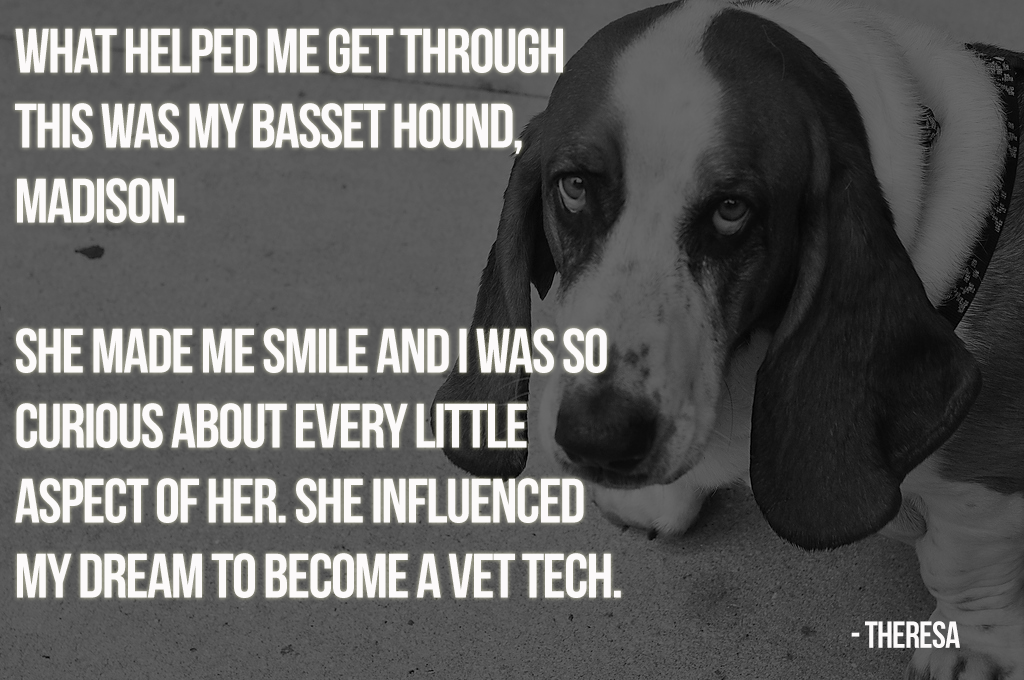
13. "Usually I'll write down my favourite quotes, empowering things like: "I'm the hero of this story." Maybe I don't feel like it at the time, but it gets rid of the urge to self-harm."
—Shannon
14. "The thing that helped me the most was finding a song I found comfort in. For me it was "My Love Is Like a Star" by Demi Lovato, who is my favourite artist."
—Presley
15. "Cartoons like Adventure Time, Steven Universe, Gravity Falls and Over the Garden Wall helped me the most. Whenever I felt bad I rewatched the series. I have a passion to become a cartoon designer to make impact on other kids' lives the same way they did to me."
—Makenna
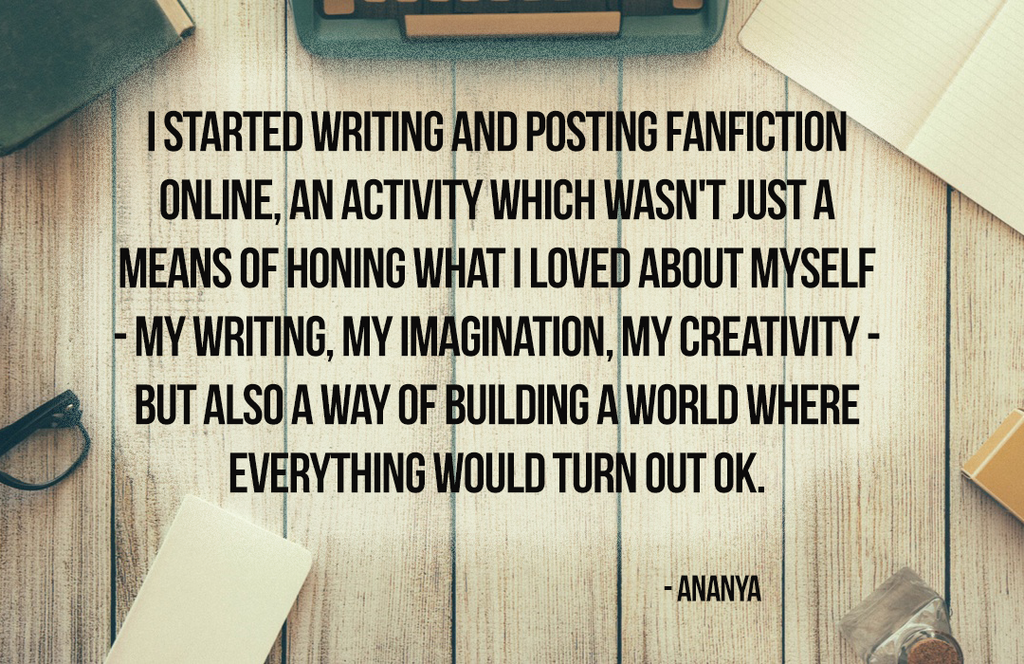
17. "When my nephew was born, I held him in my arms and looked down at his sweet, tiny face. I decided right then and there that I would be strong for him. I was 16 at the time and it's been 12 years since I last hurt myself, [and] when I celebrate his birthday I also privately celebrate myself."
—Anonymous
18. "The only thing that really stopped the urges for good was adopting a dog from a shelter. It's really difficult to hurt myself and put myself at risk when I have another being to take care of. My dog has taught me that broken things don't have to be broken forever."
—Anonymous
19. "I started a sketchbook which I titled My Positivity Book. I began a series of affirmations, goals and anything else that allowed myself to be nice to me. I filled it with quotes and pictures and spent hours making this book a place I could go when things seemed too desperate."
—Sarah
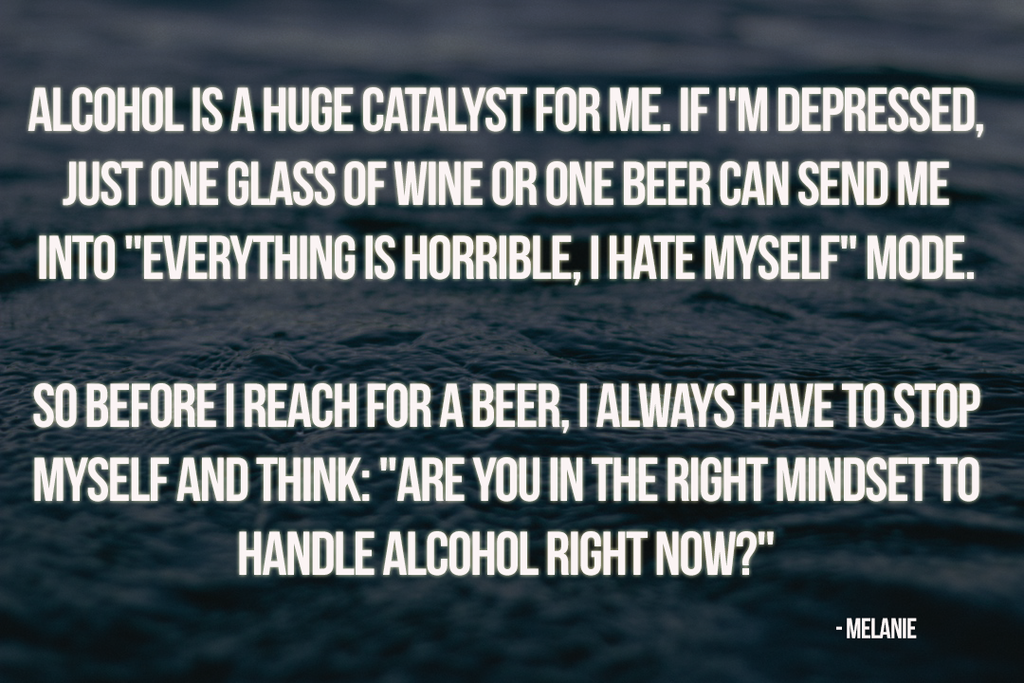
21. "No matter your religion, getting in touch with your spirituality and a community of like-minded individuals is incredibly helpful. And in many cases, leaders in the churches/religious communities are willing to meet with and counsel those who are struggling."
—Caitlin
22. "Whenever I get stressed or anxious, I have a warm bath, filled with bubbles or bath bombs, and the colours and textures ease my mind. It's the simple pleasures in life that really relax you. Treat yourself every now and then. Be kind to yourself."
—Sophia
23. "The biggest thing for me was finding a therapist who told me it was OK if I slipped up and hurt myself, it didn't mean that I had to spiral out of control. I learned that it was OK to reach out to my friends and family and tell them if I wasn't doing alright, I wasn't a burden to them. Recovery isn't as scary when you know you have people rooting for you."
—Leora
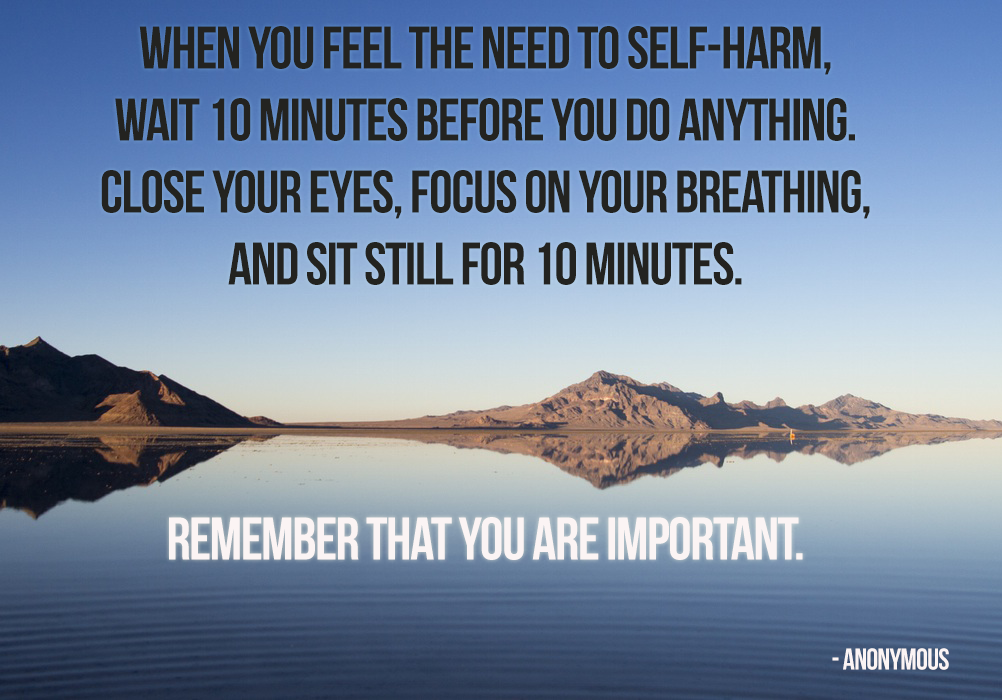
25. "I joined an intensive outpatient group. At first I was nervous to participate because explaining why I self-harmed was scary, but group therapy was the first time I've ever told my story without judgement. Being in an environment of support gave me the freedom to explore the reasons behind my need to self-harm and learn better, more productive coping skills."
—Karina
26. "I started going on more walks and asking people around me if they minded if I walked their dogs. Going outside and having time for yourself is important."
—Fionn
27. "I started sewing whenever I felt the urge to self-harm. Some people could find the needle triggering but I decided that I needed to turn something that had been destructive into something that could be creative."
—Anonymous
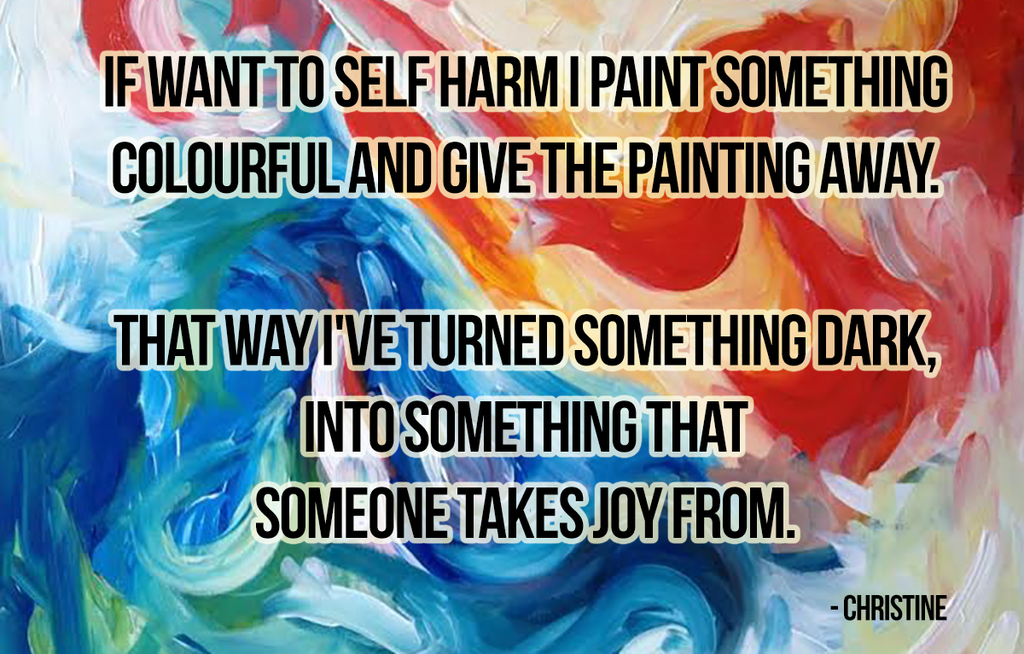
29. I know this sounds extremely sappy but time really does heal everything. It will be extremely hard at first to not harm yourself but as time goes on it will get easier. Yes, you will relapse. Pick yourself back up, forgive yourself, and start over. Recovery is HARD but it is worth it.
—Amanda
30. "I made a rule that if I did harm myself, I had to tell someone in real life. This was good, because telling people made them worried, which gave me another reason not to do it, because it was hurting them too."
—Eleanor
31. "One day when looking for a job I noticed there was an opening for a nude female model for the art department. I got the job and knew I couldn't continue self-harming. If the professor would see the wounds they might have to report it. Seeing myself drawn was life-changing! I slowly started to love my body."
—Rachel
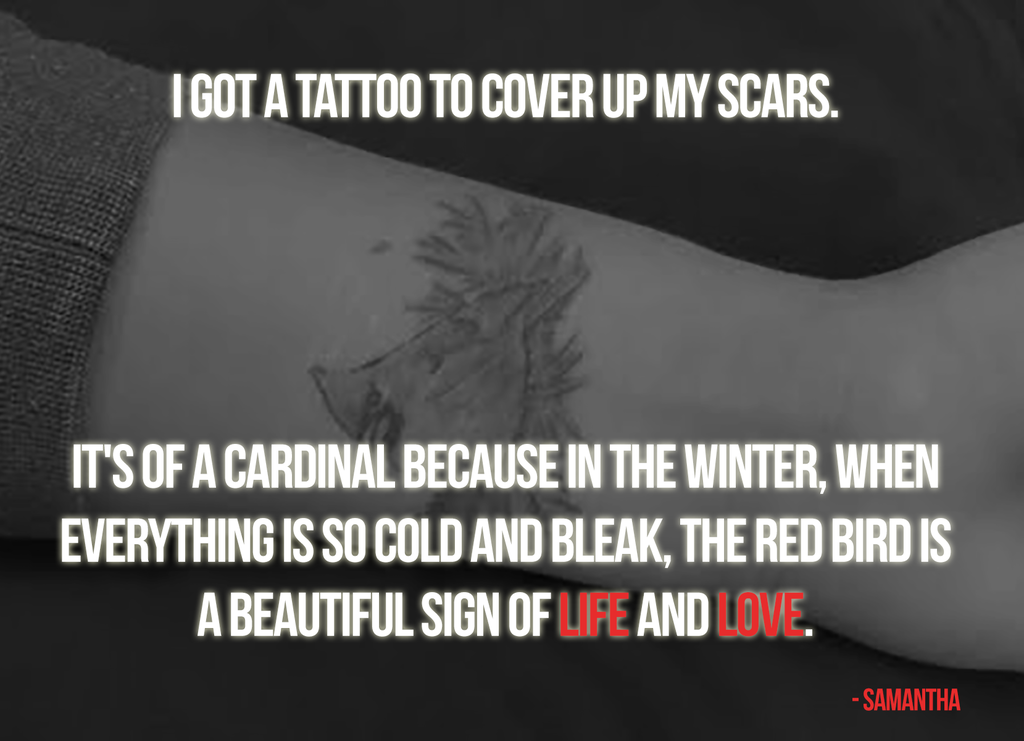
33. "Getting educated on the subject was really helpful. I ordered some books about it, from various points of view. As well as helping me understand it better, and thus manage it better, it also made it feel like less of a personal problem, and more like a general illness like any other. It changed the whole thing from feeling like a weird, messy, black hole in my head and made it feel like a real-world situation.
—Eleanor
34. "What has helped me the most is to just take it a day, hour, or even a minute at a time. When I feel the urge to self-harm I just count to 10 and if that feeling isn't gone I repeat the process until the urge is not as strong."
—Anonymous
35. "My utter openness about self-harm with my friends and family has also meant I am accountable to others. They have never judged me for hurting myself, but the pain they feel when they see what I have done has inspired me to stop."
—Mark
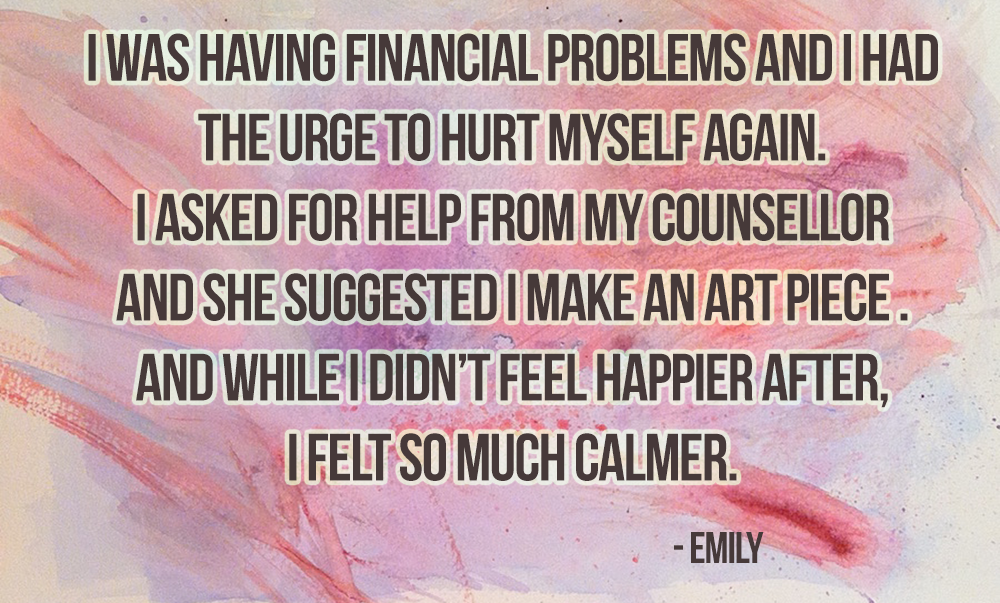
37. "The bit that really helped me to stop self-harming was an activity we did during a 'busy hands' class: glass painting (on plastic projector sheets for safety). When I felt the need to self-harm I would try out one of the designs I'd learnt. I haven't got very steady hands so it took all of my concentration and helped take my mind off the need to self-harm and the reasons why I wanted to."
—Rachel
38. "I used to self-harm and found that when the urge got too strong I would make the choice to paint my nails instead. It gives you something to keep your hands distracted for a while and something to concentrate on, and after you've painted your fingernails you won't want to do anything to smudge them and have all that work go to waste!"
—Anonymous
Note: Submissions have been edited for length and/or clarity.
Always consult with your doctor about your personal health and wellness. BuzzFeed posts are for informational purposes only and are no substitute for medical diagnosis, treatment, or professional medical advice.
To learn more about self-harm and depression, check out NHS resources here.


